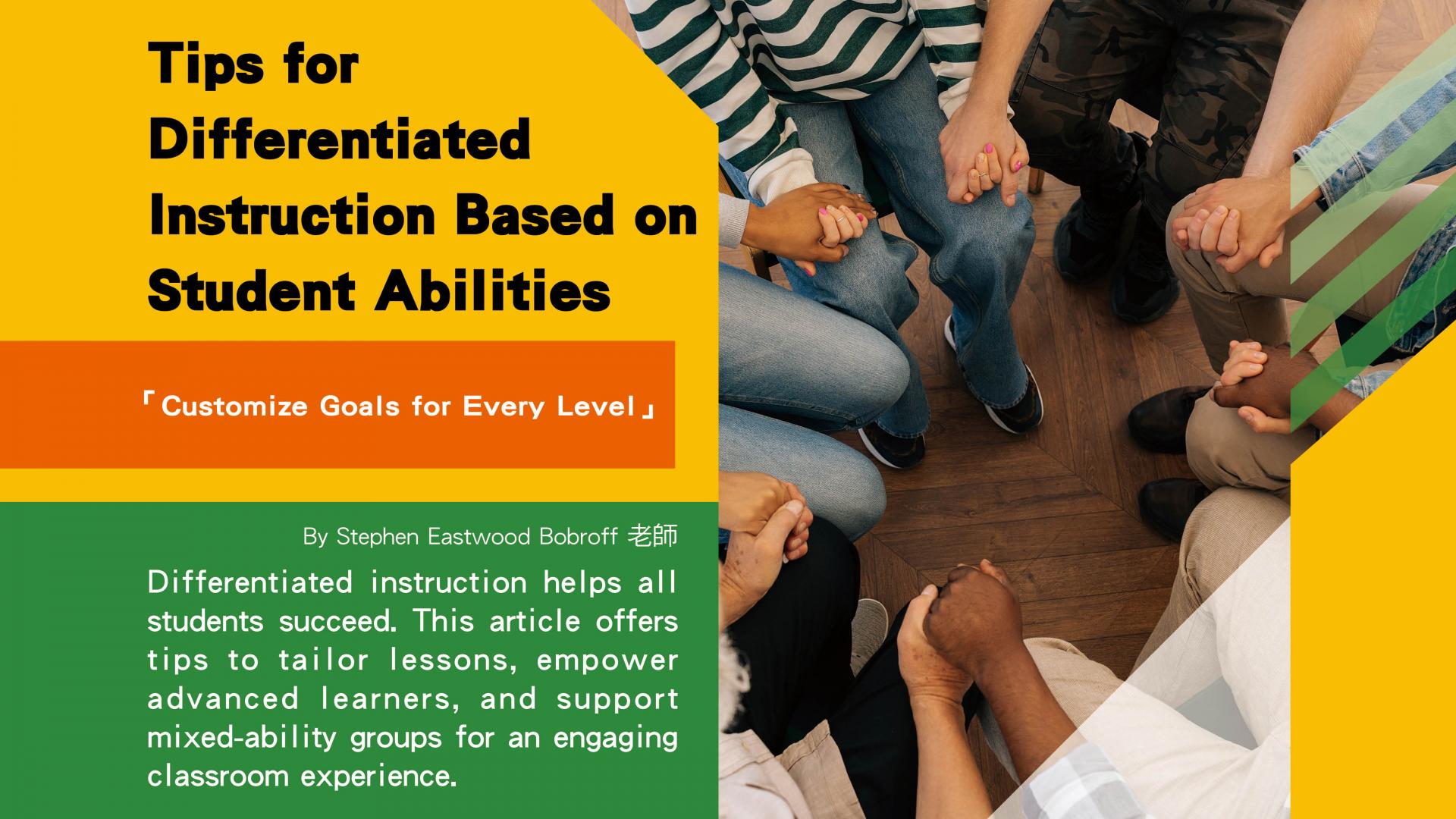
Tips for Differentiated Instruction Based on Student Abilities
By Stephen Eastwood Bobroff
Lesson-planning for the Lower Third:
No two language students’ communication skills are perfectly equal, even in a class that has been level-tested as beginner, intermediate, or advanced before placement in a course, but in a high school English class in an EFL environment like Taiwan, the range of language skill is likely to be expansive. Language teachers must understand that it is easier to step up from easier learning objectives to more difficult ones rather than to step down in the opposite direction. If you plan the lesson on a lower step, it gives the lower level students a realizable goal to achieve, while at the same time leaving room for higher level students to interact with the instructor at a higher level, and then to customize and target a higher level goal. For example, if the lesson’s learning objective includes proficiency with the English adjective phrase “be good at [doing]”, the lower level students can practice talking about things they (or rather their classmates) are good at doing in contrast with what things that they are not good at doing. For slightly higher level students, you can upgrade this to the comparative adjective phrase: “be better/worse at doing A than doing B”. Thus, when the students present their deliverables in either oral or written form, the lower level students can present constructions like “Tera is good at playing the flute, but she’s not good at playing the drums.”, while students at a higher level might say, “Henry is better at playing soccer than he is at playing tennis.” In order to do this effectively, of course, it is necessary to prepare some diagnostic ice-breakers to identify what level the lower third of the students are at, as the levels beginner, intermediate, or advanced can each be further divided into low, medium, and high.Deputizing the Upper Third:
One tactic that is commonly, and sometimes necessarily, used to work with classes of vastly disparate language abilities is to deputize the higher level students to assist in the activities of their lower level classmates. This is indeed necessary when there are students who cannot understand teachers’ instructions in the target language. This will sometimes happen naturally, as there are almost always at least some higher level students who can translate instructions and are happy to help their classmates. If it does not happen naturally, then it is a good idea to pair and group students based around “team leaders” that teachers can identify and keep in mind. Such deputation can be a good exercise for students at all levels, both the higher level students who can practice their real-time translation skills and those at a lower level who have the opportunity to better associate the teacher’s oral and written instructions with their own expectations of the learning objectives and goals. However, one must use caution when assigning higher level students to their lower level classmates. Some students may feel burdened by such requests, especially if they are made to regularly assist the same classmates, some of whom may have especially chronic challenges to language acquisition. To lighten this, instructors can randomly assign students with varied abilities to work together, so that none of the higher level students feel overburdened by being expected to look after the same classmate over and over.
